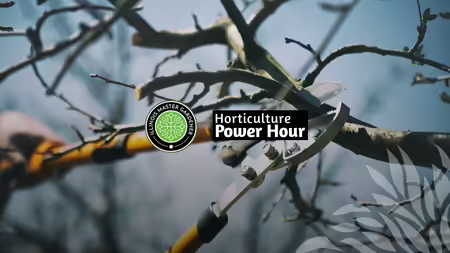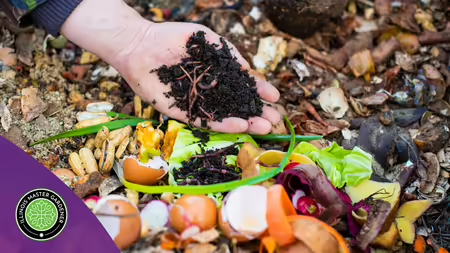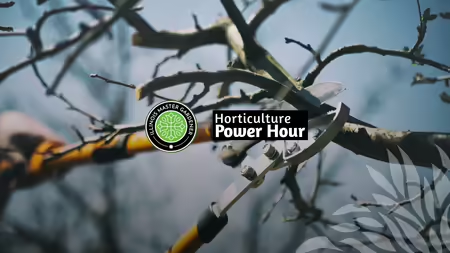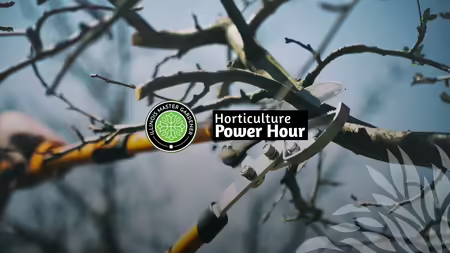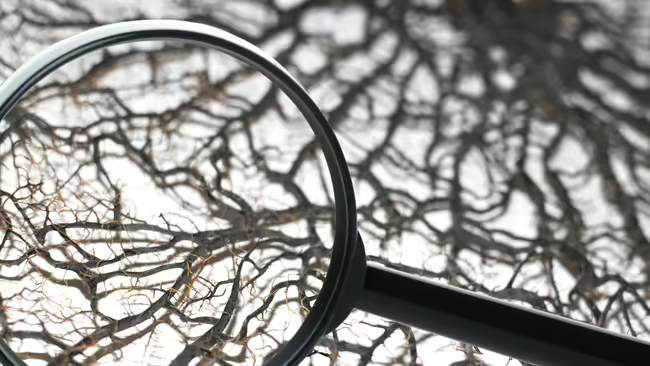
Please Note: The 2025 event is sold out. We've been alerted of some potential scams on social media where people say they can transfer or sell their tickets. Please beware and do not pay outside parties. If space opens up, waitlist members will be contacted by our Illinois Extension team only. Questions about your tickets? Please contact Maddie Olivieri-Rangel at molivran@illinois.edu. Thank you!
--------
Rooted in research, a new one-day educational event is coming to the Chicagoland area. Designed to reach gardeners, growers, environmentalists, arborists, and everyday plant lovers alike, this event is hosted by University of Illinois Extension.
Cost $65 per person and includes lunch and gift bag.
Event Sponsors
POSSIBILITY PLACE NURSERY
The Conservation Foundation | Green Guerrilla | Midwest Groundcovers-Natural Garden Natives | The Pizzo Group
Aromacharms - A Beautiful Way to Be Natural
Environmental Education Association of Illinois | The Izaak Walton League of America
Jurica-Suchy Nature Museum at Benedictine University | Platt Hill Nursery
Shared Harvest | Sustain DuPage
Symposium overview
KEYNOTE ADDRESS
Gardening for the Seasons: Lessons from Lurie Garden
Kathryn Deery, Head Horticulturalist of Lurie Garden
Using Lurie Garden as a model, we will explore shifting our mindset from one of maintenance to management in the garden, designing with ornamentals and native plants, and best practices for cutting back your garden for wildlife and insects. With a few simple adjustments to the way we garden, a beautifully designed space that considers sustainability and ecology is within everyone's reach.
BREAKOUT ONE OPTIONS
Sustainable Landscaping: Creating Beautiful and Environmentally Friendly Outdoor Spaces
Beth Peluse, Conservation@Home Program Manager, The Conservation Foundation
Learn how to create a vibrant, low-maintenance landscape that works in harmony with nature. This presentation will show you how to design outdoor spaces that attract wildlife, conserve water and other resources, and create lasting beauty—all while reducing your maintenance costs and environmental impact.
Garlic- Sow, Harvest, Eat, Repeat
Sharon Pferschy, Owner of Garlic Breath Farm
We will discuss how to grow garlic, even if you have a brown thumb, the best varieties to choose for improving medicinal health, and we to enjoy it that you may not have tried yet!
Off-Target Herbicide Drift: A Perspective (2018-2024) n
Martin Kemper, retired Illinois Department of Natural Resources biologist and Prairie Rivers Network Consultant
Prairie Rivers Network developed a science-based Tree and Plant Health Monitoring project in 2018 to document the presence and severity of off-target herbicide drift across rural and urban Illinois. In addition to providing an overview of what herbicide symptoms look like, Kemper will share principal findings of that project, which were published in PRN's report “Hidden In Plain Sight: Herbicide Drift and Chemical Trespass- A Summary of 6 Years of Monitoring and Tissue Analysis.”
BREAKOUT TWO OPTIONS
Nature Restored: Doing Your Part
Jack Pizzo, President, Pizzo Group
Restoring Ecosystems from the garden to the horizon. Incorporating native plants into the garden and restoring natural spaces are part of a sustainable approach to property management. Learn how to do your part.
Improving soil health for tree growth and longevity
Michelle Catania, Green Industry Outreach Coordinator, The Morton Arboretum
Urban soils are typically degraded and can hinder the establishment and longevity of urban plantings. These challenges can lead to poor performance and longevity of plants in the landscape. This talk will aim at providing some examples of improving soil health to improve the function of the plants, with a particular focus on trees.
Landscape Architect Jens Jensen: Bringing the Beauty of the Prairie to Public Parks
Paula Kosin, Master Naturalist, Consultant, Speaker, and Author
At the turn of the 20th century, Chicago’s immigrant poor families lived in stifling, crowded, and unsanitary tenement buildings. Learn how Jens Jensen, a Danish immigrant, fell in love with the prairie landscape and abundant native plants outside the city and in a radical move, brought its beauty to these city dwellers. He believed that amidst the oppressive industrial society at the time, people must have places nearby to escape to so they could reconnect with the natural world, “the living green.” Find out also how Jensen spent his “retirement years” up in Door County, Wisconsin.
BREAKOUT THREE OPTIONS
Plant Transformation - History, State of the Art, and Applications
Christopher Youngstrom Ph.D., Post-Doctoral Researcher, Iowa State University
Plant transformation is a genetic engineering technique that is essential for both scientific research and agricultural improvement. Due to its immense importance, many fascinating techniques have been developed to increase transformation success and expand the number of transformable species. In this session, we will delve into the art of plant transformation, explore tools and uses, review history, and discuss new promising techniques. No biology experience necessary!
Nature Journaling & Field Notebooks: How to Think Like a Naturalist
Karly Tumminello, Director/Curator, Jurica-Suchy Nature Museum at Benedictine University
The practice of nature journaling enhances observational skills, improves attention and awareness, refines focus, and develops mindfulness. Nature journaling can be done outside, indoors after an outing, or from a window view. It is an accessible nature activity that gives everyone the ability to learn about the world around them. Creating a nature journal is an act of historic preservation; capturing natural phenomena and specific moments in time through descriptive writing, photography, and sketching.
Help Spot, (report), Squash and Stop the Spotted Lanternfly!
Tricia Bethke, Forest Pest Outreach Coordinator, The Morton Arboretum
The spotted lanternfly is here—hungry and on the move! This newish pest feeds on grapevines, fruit trees, and our community trees. Learn how to identify, report, and stop the spread of the spotted lanternfly.
--
Find directions to the facility
For questions, contact Horticulture Educator Jamie Viebach at jviebach@illinois.edu or 630-955-1123. If you need a reasonable accommodation to participate, contact Extension Program Coordinator Sarah Fellerer at fellerer@illinois.edu or 630-553-5823. Early requests are strongly encouraged to allow sufficient time for meeting your access needs.
The university plans to capture photographs and video of this event. Be aware that if you attend, you are consenting to the possibility that your image and likeness may be shared or published by the university for marketing-communications purposes.
Sponsors and vendors
Click here to learn about sponsorship and vendor opportunities.
- Sponsorship marketing deadline: Nov. 20 (extended from Nov. 15)
- Vendor deadline: Jan. 15 or when space runs out
